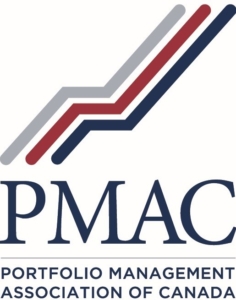Is a Portfolio Manager Right for You? Who is PMAC?
In this article, we will talk about several important topics that will help answer the question of whether a portfolio manager is a good fit for you. We’ll cover the following:
- Why do clients work with portfolio managers?
- Are you ready to become a client?
- What is a portfolio manager?
- What are the benefits of working with a portfolio manager?
- How do you select a portfolio manager?
- Who is PMAC?
Why Do Clients Work with Portfolio Managers?
- Access to financial expertise and full-time investment professionals
- Need for a customized approach to wealth management that is not available at the mass-market level
- Desire for a direct relationship and closer access to the people who make the investment decisions
- More personalized reporting and communication than mass-market or retail investments
- Lower fees to reflect:
- The larger amount of money
- The direct relationship

Are You Ready to Become a Client?
Do one or more of the following apply to you?
- Household wealth of several hundred thousand dollars or more
- Sudden lump sum from: – Inheritance – Selling a business, practice or property – Retirement or severance package
- Multi-generational wealth management
- Looking for day-to-day management of your investments
What is a Portfolio Manager?
Portfolio managers are also known as:
- Investment counsellors
- Asset managers
- Investment managers
- Wealth managers
Portfolio managers are firms and people who manage investment portfolios on behalf of individuals, foundations, endowments and pensions. Portfolio managers differ from mass-market or retail investment managers because they manage larger amounts of money for fewer clients. This often results in lower management fees and a higher level of service.
What Are the Benefits of Working with a Portfolio Manager?
Fiduciary Responsibility
Portfolio managers and their firms have a fiduciary duty to act with care, honesty, and good faith, always in the best interest of their clients. Investment decisions must be independent, free of bias, and what’s right for you.
FIDUCIARY DUTY PROFESSIONAL + QUALIFICATIONS = TRUST
Professional Qualifications
As fiduciaries, securities regulations require the highest level of education and experience in the investment industry.
Investment Policy Statement (IPS) or Written Agreement
A portfolio manager develops a written agreement (usually known as an Investment Policy Statement or IPS) that takes into account your specific needs and sets out how you will work with your portfolio manager, including ongoing communication, types of investments, reporting, fees and risk. Your IPS is the basis upon which your portfolio manager selects an appropriate mix of investments and makes discretionary adjustments to your portfolio. You and your manager should meet at least annually to ensure your IPS is up to date and reflects your needs.
Personalized Management of Your Portfolios
Your investments are managed based on the personalized objectives and risk tolerance outlined in your IPS. Typically, you give discretionary authority to your portfolio manager to make investment decisions without getting prior approval from you for each transaction.
Fees
Portfolio managers charge a percentage of the investments they manage. This fee is transparent and generally much less than retail management and distribution costs. Fees are fully transparent on client statements and typically go down as a percentage of your portfolio as your assets grow. Fees are not paid by commission based on volume of buying or selling investments and are significantly lower than typical mutual fund fees.
Safekeeping of Assets
Your money resides with a third party bank or other financial institution (known as a custodian) who is responsible for the safekeeping of your assets. This provides an extra layer of protection and safety for a small additional fee.
Registration
Both the firm and the individual who is managing your investments are registered as portfolio managers with provincial securities commissions.
Legal Requirements of Firms
Firms registered as portfolio managers must meet strict financial reporting, capital and insurance requirements to further protect your investments.

How Do You Select a Portfolio Manager
The 7Ps. If you have decided that a portfolio manager is appropriate for you, consider the following 7 “Ps” to select one that best suits your needs.
- PORTFOLIO MANAGEMENT FIRM. Each firm’s profile is different, with its own history, ownership, size and profile. Firms manage money in different ways and offer an array of investment opportunities. Some specialize in types of clients. The key to selecting the right firm is to ensure they are registered and they fit your personal circumstances.
- PEOPLE. Portfolio investment management performs two functions: (i) client relations to ascertain needs and (ii) management of clients’ investment portfolios, including active management of the investments. In large firms, these roles are performed by different professionals. Most portfolio managers hold the coveted Chartered Financial Analyst® designation (CFA charter), which is considered the most respected and recognized investment credential in the world. Portfolio managers provide active management to ensure your best interests are being met.
- PHILOSOPHY AND STYLE. Portfolio managers use different investment management approaches and styles. Some managers are specific asset class specialists, some adopt a certain style such as value, growth or momentum, and some offer a combination of specialty products and styles.
- PROCESS. The investment process outlines the steps in creating a portfolio. A firm might follow virtually hundreds of different investment strategies. Process provides a structure to allow investors to see the source of different investment strategies and philosophies.
- PERFORMANCE. Performance is often the result of the disciplined application of a manager’s investment philosophy or style. Managers report and communicate performance in a variety of ways – through written, telephone and face-to face meetings. It is important to agree – at the outset – on how you will receive feedback on performance.
- PORTFOLIO MANAGEMENT AND WEALTH SERVICES. Depending on size and specialization, portfolio managers can offer investment solutions from fixed income to balanced to equities, from both private and public markets. Firms may offer investments from Canada or other geographic regions around the world.
- PAYMENT FOR SERVICES. Portfolio managers typically charge a management fee based upon the amount of assets managed. Fees vary and may depend on the size of the portfolio. All fees are disclosed fully on client statements. Portfolio manager fees are generally lower than mass-market or retail investments because they manage larger sums on behalf of fewer clients. Advancing Standards
Who is PMAC?
The Portfolio Management Association of Canada (PMAC) is a not-for-profit organization that exclusively represents firms that are regulated by provincial securities commissions under the category of “portfolio manager.” Since its founding in 1952, PMAC (formerly the Investment Counsel Association of Canada or ICAC) has prescribed certain principles of conduct for portfolio managers. PMAC provides extensive services and benefits to its members, including up-to-date regulatory and compliance information and education. In addition, PMAC serves as an advocate for portfolio manager firms with respect to provincial and federal securities regulations that impact the firms and you, the investor. All firms that are members of PMAC have specific responsibilities to their clients. Portfolio managers must commit to the following:
- Act in a professional and ethical manner at all times
- Act for the benefit of clients
- Act with independence and objectivity
- Act with skill, competence and diligence
- Communicate with clients in a timely and accurate manner
- Uphold the applicable rules governing capital markets
All members of PMAC are regulated by provincial securities commissions to ensure firms meet applicable regulatory requirements. Our membership criteria requires complete independence in portfolio management activities and encourages policies and practices that help grow and protect investor assets.


